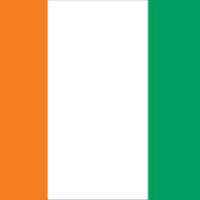The trade sector in Ivory Coast is vibrant, anchored on the strategic location and diversification of the export trade. The country is a major producer of agricultural goods such as cocoa, coffee, and cotton, which are necessities of the global commodity needs. Cotton is more significant to the textile and apparel trade for both import use and as an export item and remains a key input in the textile and apparel trade (Daniel and Sama, 2020). Export policies of the nation are in place to help the nation better carve out its position in the global market by aligning it with strategic trading partners such as China, the United States, and members of the European Union (Raga and Abudu, 2022). Still, there are bilateral and trilateral barriers to trade through structures like tariffs and some related problems like logistic hitches at the ports. Despite these challenges, Côte d’Ivoire joined regional economic organizations such as the Economic Community of West African States, which encourages trade liberalization and brings down tariffs on trade between member countries (Charles, 2021).
On the import side, the products that Côte d’Ivoire mainly imports are manufactured goods, machinery, and textile products from countries with the most advanced industries, such as the People’s Republic of China and India. The apparel industry relies on the importation of fabrics and dyes that go well with cotton grown locally. Trade policies in Côte d’Ivoire have been crafted in a way that seeks to reduce the dependency of the country on imports by promoting local industries and SMEs operating within the textile industry (Keho, 2020). Nonetheless, the country remains threatened by the influx of cheap imported fashion clothes that flood the domestic outlets and hamper the development of homegrown firms. For Côte d’Ivoire to realize sustainable economic growth, the country needs to diversify its exports while at the same time working towards making the textile industry more autonomous.



